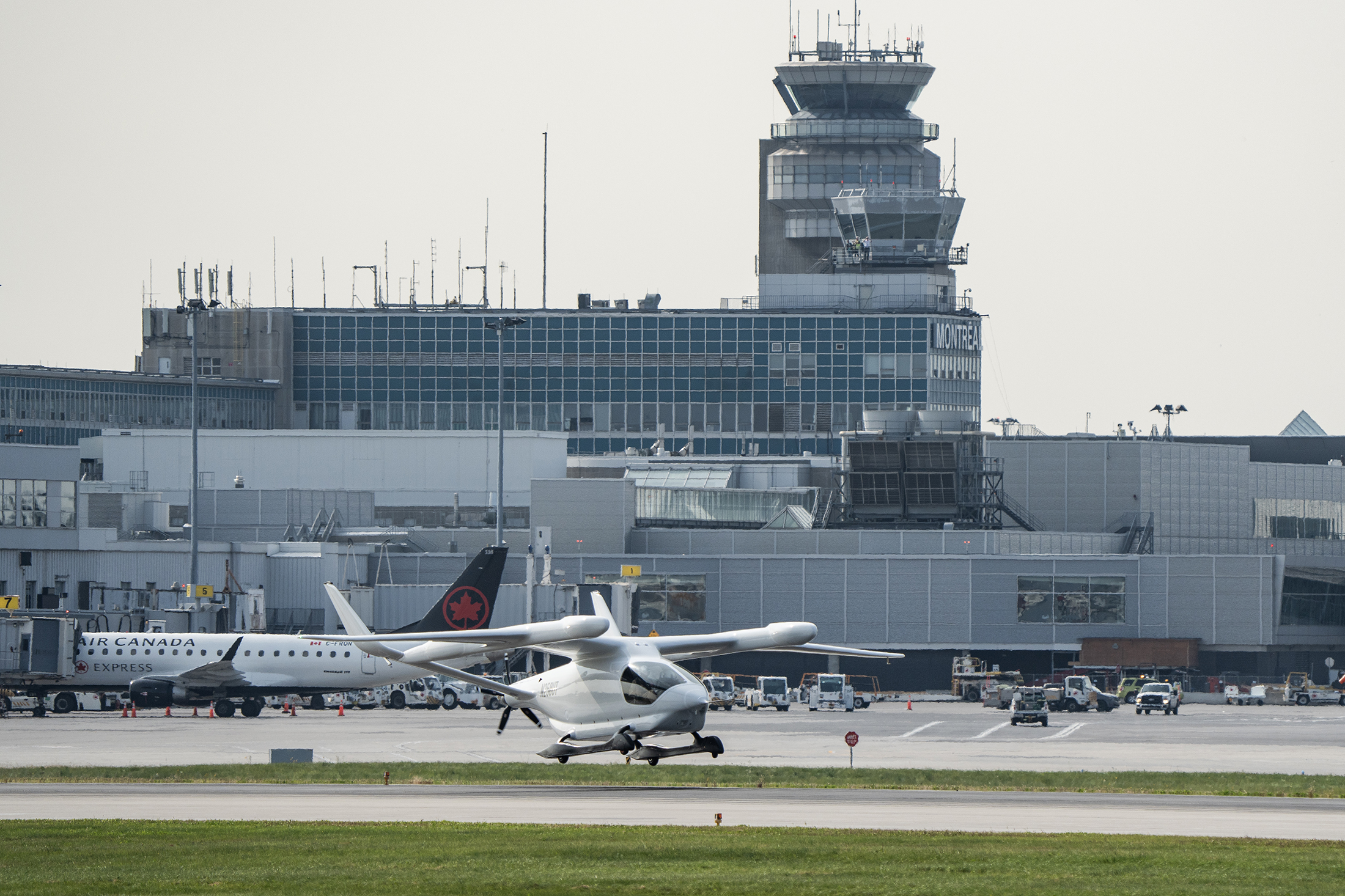Vermont-based electric aircraft developer Beta Technologies flew its Alia prototype into Montréal on Wednesday. According to Beta, this was the first time an all-electric aircraft crossed an international border and the first time one landed in Montréal.
With Beta test pilot Chris Caputo at the helm and accompanied by Beta flight test engineer Emma Davis, the Alia prototype took off from the company’s flight testing center at Plattsburgh International Airport (PBG) in New York at 1:54 p.m. EDT. About 30 minutes and 64 miles (55 nm) later, it touched down at Pierre Elliott Trudeau International Airport (YUL), where the company recently opened a research and development facility. According to Beta, the Class B airport is in busy airspace and serves about 53,000 passengers per day.
“It’s exciting to have this opportunity to fly our all-electric aircraft into one of the busiest airports in one of the top aerospace capitals of the world,” said Beta founder and CEO Kyle Clark. “Quebec’s focus on sustainability and carbon neutrality matches ours at Beta, and we are grateful for the support of our partners in the region, like ICAO, AéroMontréal, the airport, and the delegation. This flight represents another meaningful step toward creating a sustainable aviation future globally.”
Several leaders from the aerospace and transportation industries joined Beta at the Montréal airport to commemorate the Alia’s flight, including ICAO secretary general Juan Carlos Salazar, AeroMontréal president Melanie Lussier, Montréal Airports president and CEO Yves Beauchamp, and Quebec’s delegate for New England, Marie-Claude Francoeur.
“In its aerospace strategy, Quebec emphasizes revolutionary technologies that will meet the environmental requirements for the next generation of aircraft. Beta's project is fully in line with this strategy and, on a larger scale, with the objectives and priorities of our region's premiers and governors,” said Francoeur. “This collaboration between Quebec and Vermont is a perfect example of the technological breakthrough that will help us achieve our regional goal of carbon neutrality by 2050.”
Beta, which is headquartered in South Burlington, Vermont, is developing two versions of its six-seat electric air taxi: one with vertical lift capabilities and one that takes off and lands like a conventional airplane, or CTOL. The aircraft that flew to Montréal on Wednesday is in the CTOL configuration. That same aircraft has so far accrued more than 26,000 miles (42,000 kilometers) in flight testing over the past three years, including on some cross-country flights.
Beta originally developed the CTOL airplane as a technology demonstrator for its eVTOL aircraft, but the company recently decided it would certify both versions of the vehicle, not just the eVTOL. According to Beta, the two aircraft share 80 percent of their design elements, with the primary difference being the vertical lift propellers. The CTOL aircraft is expected to be certified and ready for commercial service in 2025, with certification and service entry of the eVTOL version following shortly thereafter.
